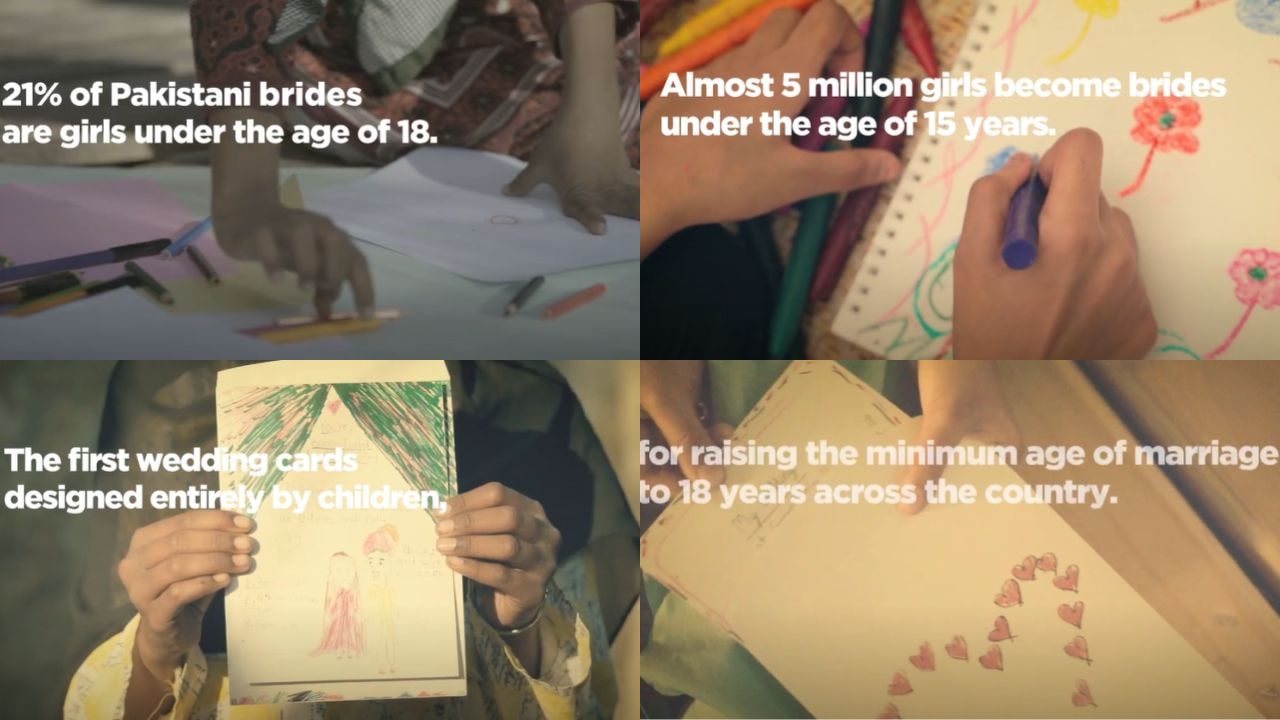When Balika Vadhu, a widely watched Indian television drama, premiered in the mid-2000s on Colors TV, it quickly captured the public’s imagination. The show eventually evolved into a celebration of education and empowerment for its young female protagonist, but it began with a stark depiction of child marriage — a practice still entrenched across parts of South Asia.
Today, child marriage remains a pressing issue, particularly in Pakistan, where an estimated 19 million girls are married before the age of 18, according to a 2024 report from the United Nations Children’s Fund (UNICEF). Approximately one in six Pakistani girls enters matrimony in childhood, often forcibly and without consent.
In response to this enduring crisis, UN Women Pakistan launched a campaign that merged art, advocacy, and unsettling reality. Titled #ChildWeddingCards, the initiative asked a poignant question: What would a wedding invitation look like if it were designed by a child bride?
The campaign, developed in collaboration with the creative agency Impact BBDO, featured wedding cards illustrated by young girls from varied socio-economic backgrounds. Each invitation was laced with chilling statistics and stark messaging, forcing the reader to confront the brutal consequences of child marriage.
The objective was both simple and ambitious: to raise awareness and rally support for legislation establishing 18 as the legal minimum age for marriage in Pakistan. As part of the campaign, UN Women and its partners sent these symbolic invitations directly to policymakers and religious leaders, urging legislative action.
The campaign resonated beyond borders. At the 2024 Cannes Lions International Festival of Creativity, #ChildWeddingCards earned the prestigious Health Grand Prix for Good and a Gold Lion in the Health and Wellness category — a rare feat for a campaign rooted in social justice.
Statistics cited in the initiative were sobering. Nearly 21 percent of brides in Pakistan are underage, and an estimated five million girls have been married before turning 15. Yet it was the deeply human details — the delicate handwriting, the innocent illustrations, the imagined futures interrupted by forced marriage — that lent the campaign its emotional weight.
On March 7, 2023, the Federal Shariat Court of Pakistan issued a landmark ruling: the legal age for marriage must be 18. The decision marked a significant step forward for child rights in the country, bolstering hope for reformers and human rights advocates alike.
While meaningful change in cultural norms and enforcement may still take time, the campaign succeeded in breaking the silence. In doing so, it transformed a symbol of celebration — the wedding card — into a powerful instrument of protest.
